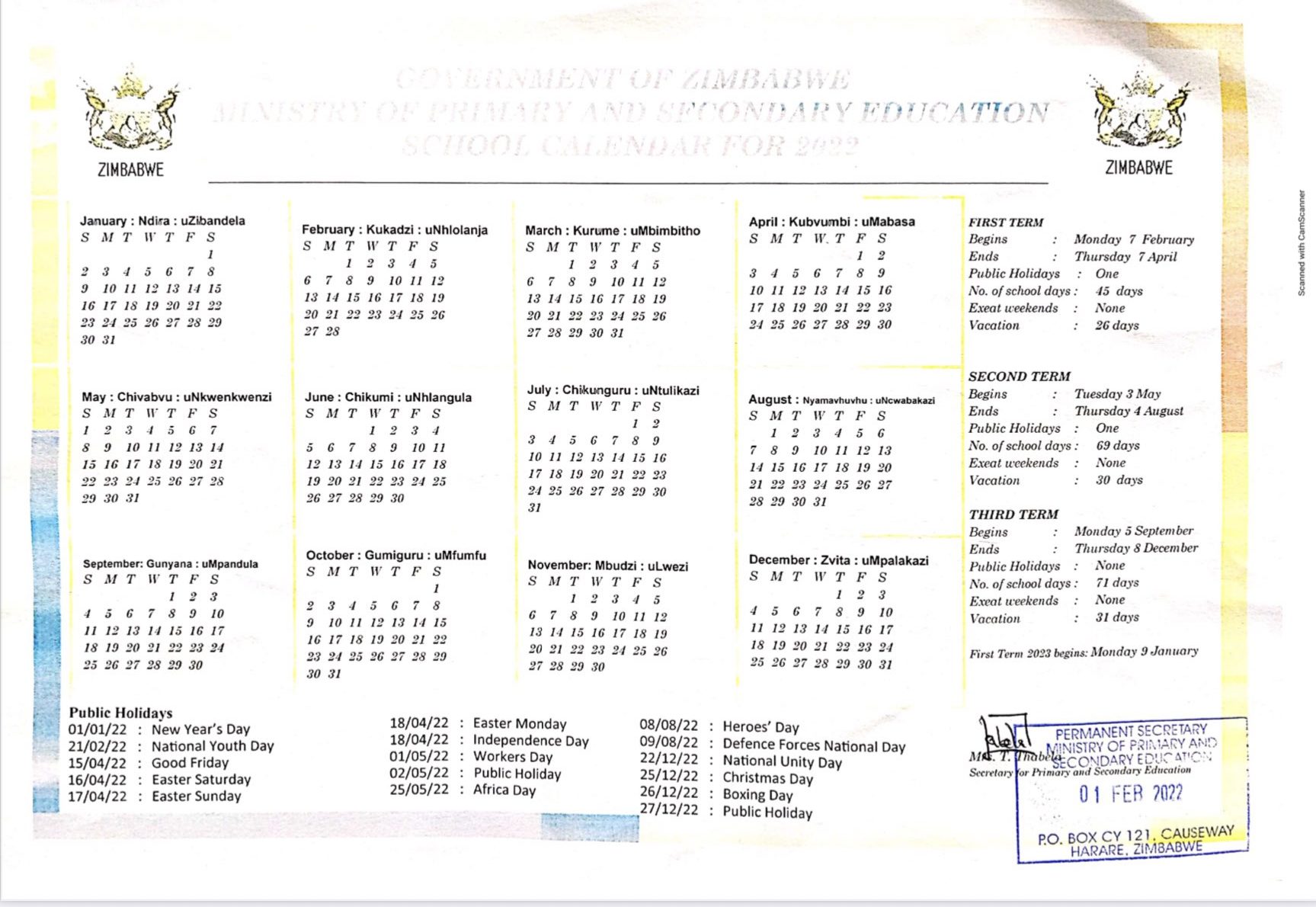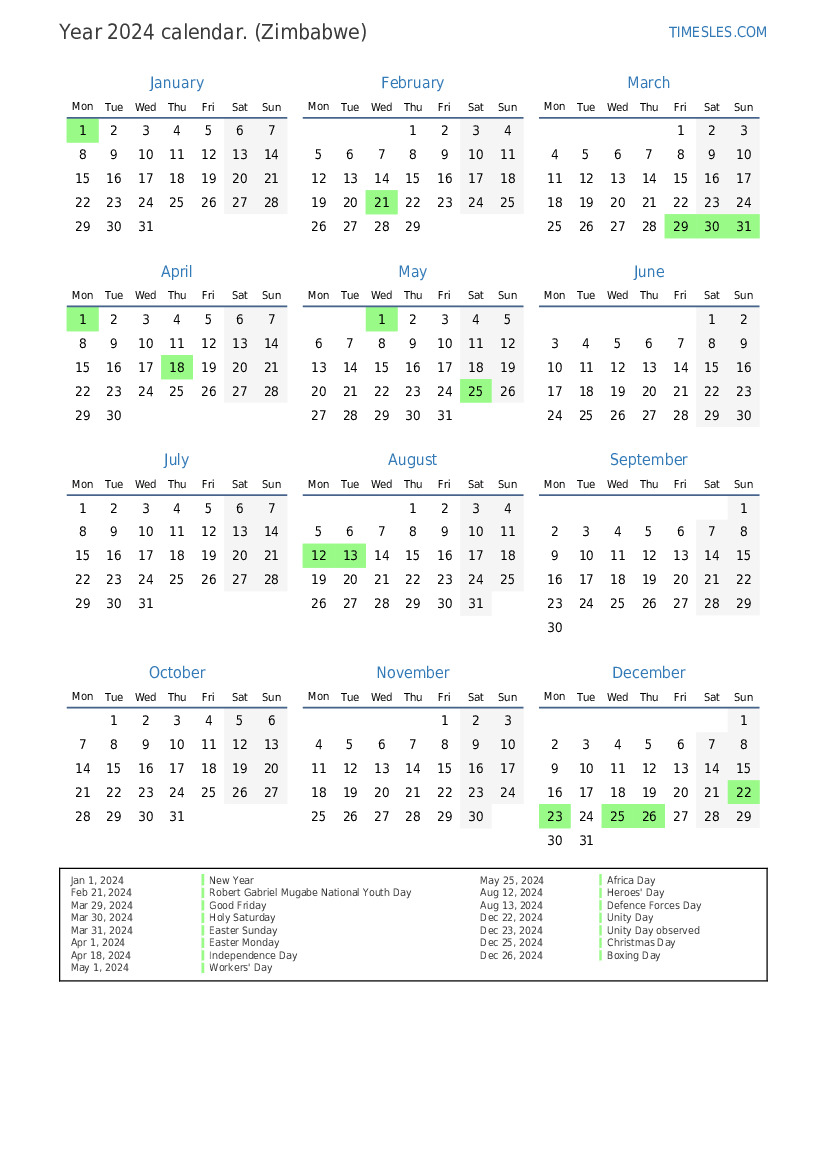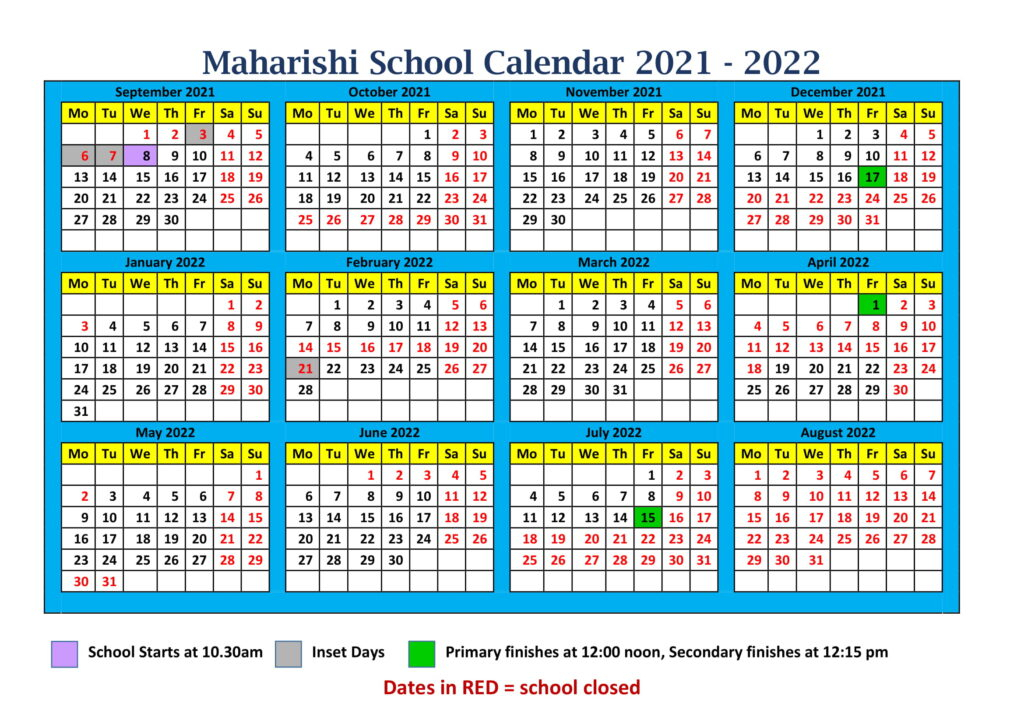Zimbabwe’s New School Calendar: A Comprehensive Overview
Related Articles: Zimbabwe’s New School Calendar: A Comprehensive Overview
- Canadian Calendar 2025 With Holidays
- 8 X 10 2025 Wall Calendar: A Comprehensive Guide
- Toms River Regional Schools 2023-2024 Academic Calendar
- 2025 And 2025-2026 School Calendar For Duval County Public Schools
- 2025 Calendar Sri Lanka With Holidays
Introduction
With great pleasure, we will explore the intriguing topic related to Zimbabwe’s New School Calendar: A Comprehensive Overview. Let’s weave interesting information and offer fresh perspectives to the readers.
Table of Content
Video about Zimbabwe’s New School Calendar: A Comprehensive Overview
Zimbabwe’s New School Calendar: A Comprehensive Overview

Introduction
The Zimbabwean government recently unveiled a new school calendar, marking a significant shift in the country’s education system. The revised calendar aims to address several challenges faced by students and educators, including the impact of climate change, the need for alignment with international standards, and the desire to improve learning outcomes. This article provides a comprehensive overview of the new school calendar, exploring its key features, rationale, and potential implications.
Key Features of the New School Calendar
The new school calendar introduces several notable changes compared to the previous one:
- Extended Academic Year: The academic year has been extended by three weeks, starting in January and ending in December. This extension provides more time for teaching and learning, allowing for a more comprehensive coverage of the curriculum.
- Term Breaks: The number of term breaks has been reduced from three to two. The first term break will occur in April, while the second will be in August. This reduction aims to minimize disruptions to the learning process and maximize instructional time.
- Public Holidays: Public holidays have been consolidated into two designated periods: one in April and the other in August. This consolidation ensures that students have extended breaks during these periods without interrupting the flow of the academic year.
- Examination Periods: Examination periods have been adjusted to align with the new term structure. The first examination period will take place in April, followed by the second in August and the final in December.
Rationale for the Changes
The government’s decision to revise the school calendar was driven by several key factors:
- Climate Change: Zimbabwe has been experiencing increasingly erratic weather patterns, including droughts and floods. The extended academic year provides more flexibility to adjust the school schedule in response to weather conditions.
- International Alignment: The new calendar aligns Zimbabwe’s education system with international standards, making it easier for students to pursue further studies or work abroad.
- Improved Learning Outcomes: The extended academic year and reduced term breaks are expected to improve student learning outcomes by providing more time for teaching and consolidating knowledge.
- Teacher Development: The extended academic year also provides more time for teacher training and development, which is crucial for enhancing the quality of education.
Potential Implications of the New Calendar
The new school calendar is likely to have several implications for students, educators, and the education system as a whole:
- Increased Academic Rigor: The extended academic year and reduced term breaks will require students to manage their time effectively and maintain a consistent level of focus.
- Improved Teacher Workload: The extended academic year and fewer term breaks may increase the workload for teachers, who will need to adapt to the new schedule and provide additional support to students.
- Calendar Coordination: Parents and employers will need to adjust their schedules to accommodate the new school calendar, particularly during the extended academic year and consolidated public holiday periods.
- Curriculum Adjustment: The extended academic year may necessitate adjustments to the curriculum to ensure that all necessary content is covered effectively.
Conclusion
The introduction of a new school calendar in Zimbabwe represents a significant step towards improving the quality of education in the country. The extended academic year, reduced term breaks, and alignment with international standards are all measures designed to enhance student learning outcomes and prepare Zimbabwean students for success in a globalized world. While the new calendar may present some challenges, it is anticipated that the benefits of a more structured and comprehensive education system will ultimately outweigh the potential drawbacks.







Closure
Thus, we hope this article has provided valuable insights into Zimbabwe’s New School Calendar: A Comprehensive Overview. We thank you for taking the time to read this article. See you in our next article!